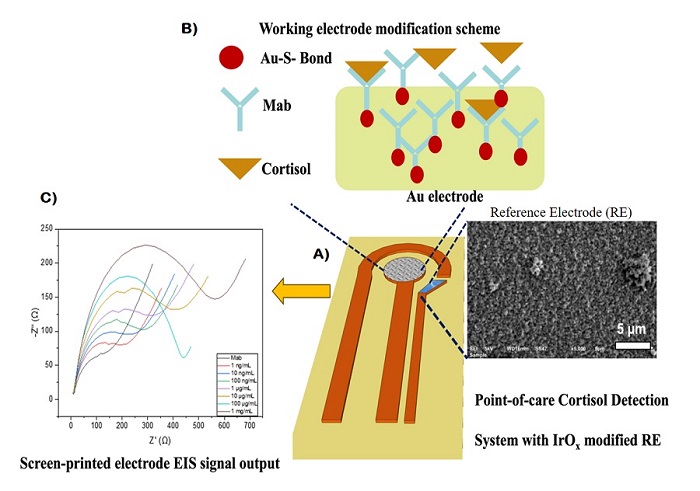Easy-To-Use Point-Of-Care Testing Device Accurately Measures Cortisol Levels in Blood
Posted on 04 Sep 2024
Stress manifests in various forms, and the inability to manage high stress levels can lead to severe health problems like depression and Alzheimer's disease. The development of a cost-effective, reproducible, and easy-to-use point-of-care testing device that accurately measures cortisol—a key stress biomarker in the blood—has been a significant goal of researchers. Such a device could greatly facilitate the quick diagnosis of elevated cortisol levels, thereby significantly enhancing quality of life. However, the electrodes used in currently available devices are not stable under varying conditions such as changes in pH and temperature, resulting in a limited shelf life and difficulties in commercial production.
Now, researchers at Xi'an Jiaotong-Liverpool University (XJTLU, Suzhou, China) have developed an innovative cortisol detector that addresses these challenges. Traditional cortisol sensors use reference electrodes with a silver layer that tends to oxidize and destabilize during electrochemical measurements. In the new study published in the journal Talanta, the researchers introduced iridium oxide nanoparticles to coat the silver layer, significantly enhancing the stability, sensitivity, and reproducibility of cortisol measurements in point-of-care settings. This is the first application of iridium oxide in this manner. The resulting device is simple and affordable, capable of detecting cortisol levels at concentrations 3,000 times lower than the typical cortisol range found in blood, making it highly suitable for commercial use. Additionally, the iridium oxide-modified electrodes have increased the selectivity of the tests, improving the device’s overall efficacy.

"One problem with the current solutions is that there is much similarity between cortisol and other hormones such as progesterone, testosterone, and corticosterone. This means it is difficult for the detectors to tell them apart,” said Dr. Graham Dawson, XJTLU Associate Professor and co-author. “Our iridium oxide-modified electrode is selective enough to distinguish the different hormones and helps to solve this issue."
Related Links:
XJTLU














